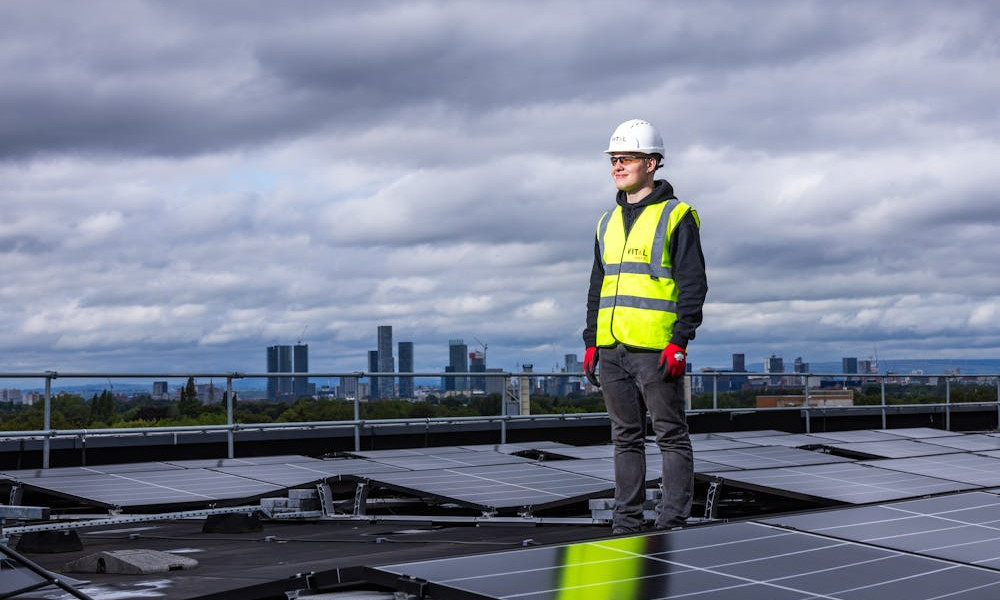Reviews
Six Sustainability Trends in Manufacturing in 2025

Sustainability in manufacturing has evolved into a necessity, reshaping how industries operate. From reducing waste to adopting renewable energy, businesses are now embracing practical solutions for lasting impact.
Let’s explore the top six trends that are driving greener practices and smarter operations this year.
1. Reducing Waste Through Circular Manufacturing Practices
Circular manufacturing focuses on minimizing waste by designing products that can be reused, remanufactured, or recycled. Instead of discarding materials at the end of their lifecycle, businesses find ways to bring them back into production.
For example, manufacturers may collect used products from customers to extract valuable components for new items.
This reduces reliance on raw materials and cuts down waste sent to landfills.
Global brands are adopting these methods as part of their sustainability goals. It’s an approach that lowers environmental impact while offering cost savings through efficient resource management.
Circular manufacturing also aligns with consumer expectations for more environmentally responsible practices in 2025 and beyond.
2. Using Cutting-Edge Recycling Technologies in Factories
Advanced recycling technologies allow manufacturers to process waste materials more efficiently. These systems break down used plastics, metals, and other materials into raw materials that can be reintroduced into production lines.
Chemical recycling is one example gaining attention for its ability to handle complex materials like mixed plastics, which traditional methods cannot process effectively.
Similarly, innovations such as AI-driven sorting systems ensure higher purity levels in recycled outputs.
By integrating these technologies into their operations, factories significantly reduce landfill contributions and reliance on virgin resources. They also save on material costs over time by recovering valuable inputs from industrial waste streams.
As technology evolves further, these processes will become even more accessible for businesses of all sizes.
3. Utilizing Advanced Material Innovation to Minimize Environmental Impact
Manufacturers are increasingly turning to advanced materials like:
- Biodegradable polymers.
- Recycled composites.
- Lightweight metals.
These materials reduce resource use during production while lowering the environmental impact of finished products.
By replacing traditional inputs with sustainable alternatives, businesses limit waste generation and energy consumption.
For instance, automotive manufacturers can adopt lighter materials that improve fuel efficiency in vehicles.
Investing in material innovation also enhances product durability and recyclability.
This approach supports long-term sustainability goals by addressing both ecological concerns and evolving consumer demands for greener solutions.
4. Leveraging Renewable Energy for Powering Plants
Factories increasingly adopt renewable energy sources like solar, wind, and hydropower to replace fossil fuels. These energy alternatives lower greenhouse gas emissions and reduce dependency on non-renewable resources.
Also, many manufacturers now install solar panels directly on factory rooftops or partner with wind farms through power purchase agreements.
Some also integrate energy storage systems, ensuring operations remain stable even during fluctuations in supply.
Shifting to renewables often leads to long-term cost savings by cutting electricity expenses. It also aligns manufacturing practices with global efforts to combat climate change.
Companies implementing these strategies demonstrate environmental responsibility while enhancing their competitiveness in markets that prioritize sustainability-focused suppliers.
5. Optimized Storage Solutions and Space Management
Optimized storage solutions, such as those offered by East Coast Storage Equipment Company, along with effective warehouse management and material equipment handling, can play a crucial role in supporting sustainability efforts.
How? By improving space utilization and reducing waste.
Efficient layouts reduce the need for expanded facilities, cutting energy usage tied to lighting, heating, or cooling additional areas.
Smart inventory systems prevent overstocking materials that could become obsolete.
Automation technologies further streamline operations by moving products with minimal resource use.
These strategies also lower operational costs through reduced energy consumption and better organization.
For manufacturers seeking greener practices, improved storage is a practical step toward minimizing their environmental impact while boosting efficiency across the supply chain.
6. Lowering Emissions Within Supply Chains
Reducing emissions across supply chains is a priority for manufacturers aiming to meet sustainability goals.
By optimizing transportation routes, consolidating shipments, and switching to energy-efficient vehicles or fleets powered by alternative fuels, companies will significantly cut greenhouse gas output.
Plus, partnering with local suppliers reduces the distance that goods travel, further lowering carbon footprints.
Implementing digital tools like route optimization software ensures that deliveries are both efficient and environmentally friendly.
Some businesses go a step further by utilizing rail or water transport over traditional road shipping methods where feasible.
These efforts not only help the environment but also lead to cost savings on fuel and logistics operations.
Improving supply chain emissions strengthens environmental credibility while creating more resilient delivery networks in competitive markets.

-

 World1 week ago
World1 week agoEthiopian volcano erupts for first time in thousands of years
-

 Health2 days ago
Health2 days ago8 kittens die of H5N1 bird flu in the Netherlands
-

 Legal7 days ago
Legal7 days agoUtah Amber Alert: Jessika Francisco abducted by sex offender in Ogden
-

 US News6 days ago
US News6 days agoExplosion destroys home in Oakland, Maine; at least 1 injured
-

 Health7 days ago
Health7 days agoMexico’s September human bird flu case confirmed as H5N2
-

 Legal3 days ago
Legal3 days ago15 people shot, 4 killed, at birthday party in Stockton, California
-

 World7 days ago
World7 days agoWoman killed, man seriously injured in shark attack on Australia’s NSW coast
-

 US News2 days ago
US News2 days agoFire breaks out at Raleigh Convention Center in North Carolina




